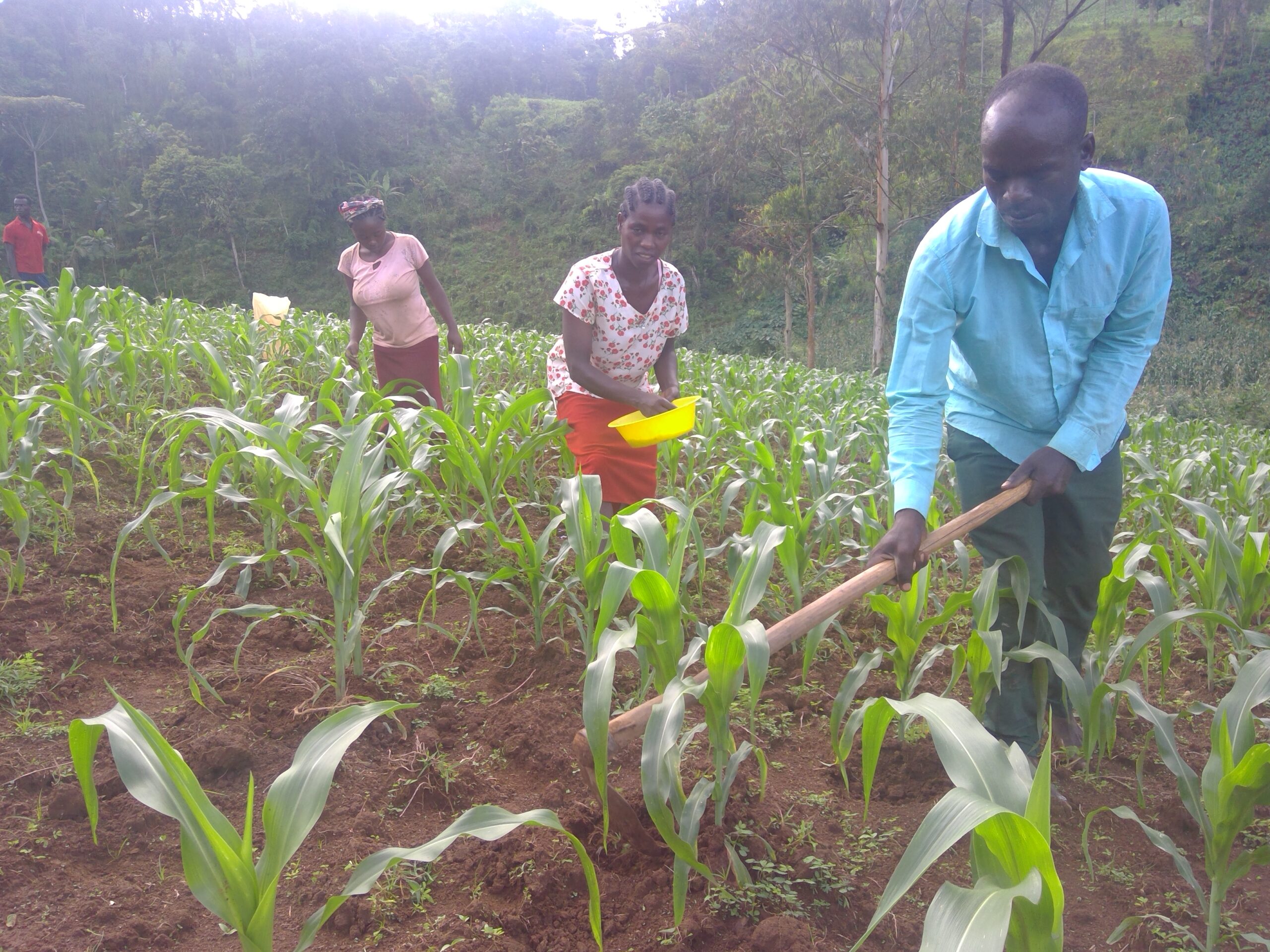In celebration of International Day of the World’s Indigenous Peoples (August 9) and in observation of the International Decade of Indigenous Languages (2022-2032), Digital Green would like to draw attention to the importance of supporting indigenous people and preserving indigenous languages and their unique cultures.
In Ethiopia, although agriculture is the mainstay of the economy, generating over 45% of the GDP and 90% of the total export earnings of the country, agriculture is characterized by very low productivity. The Ethiopian Government has been actively pursuing agricultural extension as a key means of strengthening agricultural productivity and transforming economic and rural development. However, indigenous farmers struggle to increase their productivity because extension services are delivered using technical terms in a non-native language that is difficult for the farmers to understand and implement.
Tegen Kars (pictured with his family) is a farmer living in Goritnamag Kebele of Bench Maji zone. Tegen used to receive agricultural extension support in Amharic. He struggled to apply what he had learned, as he is a native speaker of Bench, a Northern Omotic language spoken by about 174,000 people. According to Tegen, “No matter what kind of farmer we are, most of us do not understand technical terms, which causes the agricultural extension training to be misunderstood.”
struggled to apply what he had learned, as he is a native speaker of Bench, a Northern Omotic language spoken by about 174,000 people. According to Tegen, “No matter what kind of farmer we are, most of us do not understand technical terms, which causes the agricultural extension training to be misunderstood.”
Tegen said that receiving agricultural advisories via videos helped him and his peers better understand the agronomic practices. The videos are made in Bench language and feature local farmers just like him. “To be honest, every farmer is happy. I learned things I did not know before and did not pay much attention to would increase productivity from the video tutorials. I am able to make a difference in my agricultural practices by getting a good education from the video extensions,” Tegen noted.
Tegen recommended video extension services for farmers elsewhere noting, “If all farmers get video-based extension services and learn from the practice of fellow farmers they watched on the videos, they will be able to translate the videos into action. Video tutorials correct us from many mistakes as we need up-to-date lessons.” Speaking of his success, Tegen said he was able to increase his profit from maize production.
Digital Green joins forces with government, private sector, and most importantly rural communities themselves to co-create solutions that are of the community and for the community. In order to enable more effective dissemination of information, Digital Green’s video extension approach focuses on delivering timely advisory messages featuring model farmers in their local languages and local context. In Ethiopia, Digital Green, in collaboration with the local agricultural offices, has produced more than 1,500 agricultural extension videos in 24 local languages which have reached more than 630,000 indigenous smallholder farmers in 10,000 villages. Globally, Digital Green has supported the production of more than 6,000 videos in over 50 local, indigenous languages.
